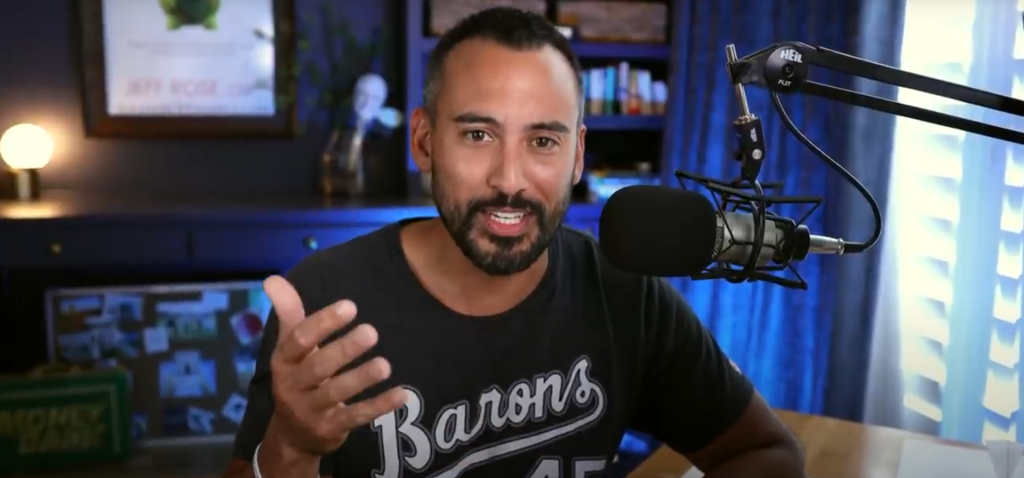It’s been a long time since I was a financial advisor. After starting at a regional firm that was eventually acquired by Wells Fargo, I co-founded an investment practice and eventually launched my own wealth management firm. During my 16 years in the industry, I advised clients on how to grow and manage their money.
But here’s the truth I learned along the way. Most advisors are trained to give the same cookie-cutter advice. Make sure you save for retirement. Invest in an IRA. Don’t forget to max out your 401(k). Keep an eye on the long term when investing.
Don’t get me wrong, all of that is sound advice. I still strongly believe that Roth IRAs should be considered by everyone. The problem is, if that’s all you hear, you’ll miss out on the bigger picture of how wealth is created.
I learned this lesson from one of my closest friends, a photographer. After diligently funding his Roth IRA, he realized he needed better equipment to grow his photography business. Initially, I hesitated, since I had been trained to promote traditional investments. But as I thought about it, the more I realized: he wouldn’t have created wealth by buying mutual funds. Instead, it was reinvesting in his own business.
It was at that moment that my advisor’s mindset was completely changed. There’s more to building wealth than playing the safe retirement game. There are times when the smartest moves are ones traditional advisors don’t suggest — either because they’ve been taught not to, or because it doesn’t benefit them.
So let me pull back the curtain. These nine truths about wealth-building and money are something that most financial advisors will never share.
Table of Contents
Toggle1. Save Money on Vehicles
Cars are among the biggest wealth killers. According to Experian, the average monthly payment for a new car was $745, and the average monthly payment for a used car was $521 in Q1 2025.
The first car I drove to client meetings was a 1998 Chevy Lumina that my grandmother passed down to me when I started my career. Although it wasn’t glamorous, it was paid off. With that one decision, I saved thousands in loan payments, funded my Roth IRA and 401(k), and gave myself breathing room in the lean early years.
Looking back, that Lumina probably gave me millions of dollars rather than sinking money into debt.
Because advisors don’t want to appear judgmental, they rarely tell clients not to buy the shiny new car. In reality, if your car payment is eating your budget alive, you’re sacrificing your financial security.
2. Don’t Buy More House Than You Need

Here’s another hard truth. Many people can’t afford the houses they stretch for. In fact, one in three households (33%) can afford to purchase a median-priced home without spending more than 25% of their income on mortgage payments.
In my experience, clients have pushed themselves into bigger mortgages simply because they were approved. The advisor often smiles and nods when he or she tells a client they cannot afford their dream home. However, if you’re already drowning in debt due to car payments, another massive financial commitment is not something you need.
Renting doesn’t mean you’re a failure. Until you’re financially stable enough to handle homeownership without stress, it makes more sense to rent.
3. Stop Buying So Much Stuff
As Americans, we tend to buy things we don’t need.
I’ve seen people blow thousands on kids’ birthday parties, luxury furniture, or brand-new trucks purchased from retirement accounts. What’s up with that $60,000 truck? When taxes are taken into account, the real cost is $80,000.
The truth is, wealth doesn’t die from one big purchase — it dies from a thousand small ones. The more unnecessary expenses you incur, the less financial freedom you will enjoy in the future.
Unless your advisor tells you to cut back on lifestyle spending, they’re doing you a disservice.
4. Save a Much Larger Percentage of Your Income

Advisors generally advise you to “save enough to get the 401(k) match.” Maybe they’ll suggest maxing it out. Almost no one recommends saving 30, 50, or even 70% of your income.
But that’s exactly what people in the FIRE (Financial Independence, Retire Early) movement are doing — and many reach financial freedom before they’re even 40.
I know it sounds extreme. But the math is simple: the more you save, the less you need to live on, and the faster you can escape the paycheck-to-paycheck cycle.
5. Work Harder in Your Early Years
I’ve never heard another advisor tell a young person to work hard in their 20s and 30s.
When you’re young, free of responsibilities, and full of energy, stack hours, build skills, and create income streams. It might mean working overtime, side jobs, freelancing, or building a business.
After ignoring this advice early on, I discovered it by trial and error. In the end, my side projects, including real estate and blogging, led to significant wealth-building opportunities.
If you grind now, while you have the stamina, your future self will thank you.
6. Invest in Your Education
Your financial advisor loves it when you invest with him or her. However, they rarely encourage you to invest in yourself.
Sometimes, a mutual fund isn’t the best investment. It’s a course, certification, or degree that increases your earning potential. It may mean going back to school, learning a high-income skill online, or even attending specialized training.
In many cases, the ROI on knowledge exceeds the ROI on traditional investments.
7. Invest in Yourself Beyond Education
I spent nearly $9,000 on a year-long coaching program years ago. In my mind, it felt insane — like money I should have been investing in. Through that program, though, I gained insights and connections that directly led to tens of thousands of dollars in new opportunities.
Even my best picks, like buying Facebook under $20, didn’t produce that kind of return.
In most cases, advisors won’t tell you this because they don’t earn commissions on coaching, therapy, or personal growth investments. But I’ve found that those investments usually yield the highest returns.
8. Venture Into Entrepreneurship

There’s always a high risk associated with starting a business, and most advisors will steer you away from it. Realistically, creating something of your own is the fastest way to build wealth for most people.
However, that doesn’t mean you should quit your job tomorrow. You might need to start an online store, start a blog, do freelancing, or flip houses as a side hustle. Rather than relying solely on your paycheck for income, you should explore other options.
When you’re young, you have time, energy, and can recover from mistakes. You should take advantage of it. Entrepreneurship is one of the best ways to build wealth.
9. Invest in Real Estate
When it comes to real estate, most advisors will recommend a REIT or an ETF. How come? Those assets can be managed and paid for by them.
However, when my clients asked about buying rentals or flipping houses, many advisors discouraged them — often due to their inexperience.
However, real estate has spawned more millionaires than most other asset classes. You can get cash flow, appreciation, and tax benefits from it if you do it right.
The Bottom Line
To be clear, not all financial advisors are bad. Some advisors are genuinely concerned about their clients and encourage creative wealth-building strategies. In many cases, though, advisors are rewarded for keeping your money in their system rather than helping you explore every option.
To build lasting wealth, you must go beyond traditional methods. This means;
- Instead of financing a new car, drive the paid-off car.
- Buying or renting a home you can afford.
- Eliminating mindless spending.
- Saving aggressively.
- Working hard in your early years.
- Investing in your education and personal development.
- Taking a closer look at entrepreneurship.
- Seriously considering real estate.
When you play it safe and follow the same path as everyone else, you won’t build wealth. You build it by making intentional, sometimes uncomfortable choices that pay off in the long run.
And, it’s those things that most financial advisors don’t tell you.
Image Credit: Kaboompics.com; Pexels
















